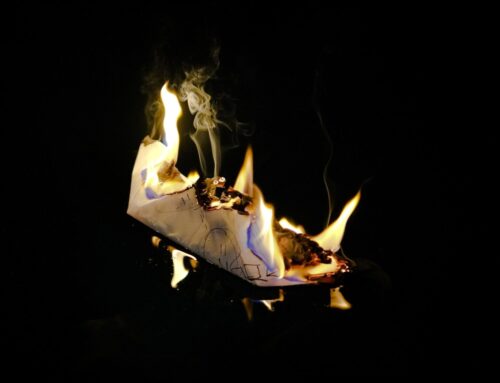Most of us wrestle with regret from time to time and it’s interesting to notice how often we do. For many of us, we never seem to win our regret re-matches and we seem to be locked in an ongoing conflict between how things are and how things might have been…if only.
What is regret
Regret is a mood that has you feel sadness, guilt or disappointment about an action taken or not taken—including things said or not said.
Regret is the dogshit of moods,
… it’s icky to step in, disgusting to clean up and you’ll take care not to step in it again… until you do. Step in regret once and the experience stays with you for life.
Perhaps because of their own regretful experiences our elders often caution us against doing things we may regret. ‘Don’t do it,” they warn, “you’ll regret it!” My mother taught her children and grandchildren an Arabian proverb to warn us against doing anything we might regret.
The Four Things that come not back
- The sped arrow,
- The past life,
- The spoken word,
- The lost opportunity
Not much chance of sped arrows, but it’s great advice that can sometimes (paradoxically) caution you into the regret you try to avoid—we often regret the words and actions we don’t let fly as much as the ones we do.
Be bold and courageous. When you look back on your life, you’ll regret the things you didn’t do more than the ones you did.
H. Jackson Brown, Jr.
Can you avoid regretful actions?
There is no formula to avoid doing things that you might regret, because sometimes you have no idea the good or bad consequences that may arise from anything you do or don’t do now.
“There is a Chinese story of a farmer who used an old horse to till his fields. One day, the horse escaped into the hills and when the farmer’s neighbors sympathized with the old man over his bad luck, the farmer replied, “Bad luck? Good luck? Who knows?”
A week later, the horse returned with a herd of horses from the hills and this time the neighbors congratulated the farmer on his good luck. His reply was, “Good luck? Bad luck? Who knows?”
Then, when the farmer’s son was attempting to tame one of the wild horses, he fell off its back and broke his leg. Everyone thought this very bad luck. Not the farmer, whose only reaction was, “Bad luck? Good luck? Who knows?”
Some weeks later, the army marched into the village and conscripted every able-bodied youth they found there. When they saw the farmer’s son with his broken leg, they let him off.
Now was that good luck or bad luck?”
We cannot know the final outcome of anything that we do or happens to us as the repercussions go far beyond what we can see. Plus as in the Chinese parable, sometimes something unpleasant makes something good possible.
Regretting something could be like a mother regretting the pain of childbirth.
 She doesn’t because she connects it to a beautiful outcome: her baby.
She doesn’t because she connects it to a beautiful outcome: her baby.
But for us—unlike the mother— we can’t easily connect the good outcome to the thing we regret. We can’t see or don’t realize the good that has come out of the thing we regret. But we can have faith that there is a good outcome, or even create one by changing the way we look at our regret and I’ll write more on that next time.
The real danger of regret
The real danger of regret is not the risk of any action taken or not taken. The danger of regret is regret itself.
Why?
Because regret is a mood that closes you down to a bright future. You can’t focus on where you’re going as long as you’re focused on the dog shit you keep stepping into; virtual dog shit that—unlike the real stuff—we keep stepping into and won’t clean off.
Instead we stare at it, lament we stepped in it, and either plot revenge on the dog owner who left it there or wonder how life would have been better if we hadn’t stepped in it.
Next time I’ll suggest ways you can clean off the dogshit of regret that’s stopping you from getting on with your life.







[…] Regret is like dogshit […]